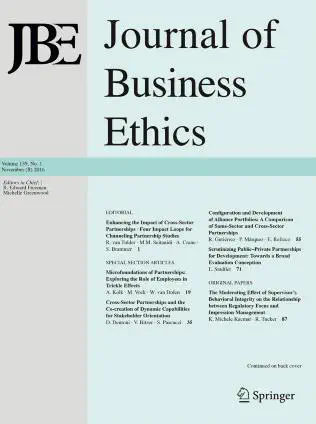Under Pressure: LMX Drives Employee Unethical Pro-organizational Behavior via Threat Appraisals

Abstract
Drawing on the transactional model of stress and leader-member exchange (LMX) theory, we examine the role of performance pressure in relation to unethical pro-organizational behavior (UPB). We propose that (1) employee perceived performance pressure and LMX interact to increase employees’ willingness to engage in UPB, and (2) employees’ threat appraisal mediates this interaction effect. The results from two studies based on samples of employees in the United States and China supported our theoretical model. We found that LMX moderated the relation between performance pressure and the willingness to engage in UPB, such that the relation was stronger when LMX was high (Study 1). Moreover, the conditional indirect effect (i.e., performance pressure on UPB through threat appraisal with LMX as a moderator at the first stage) was also supported (Study 2). These findings highlight the role of performance pressure and LMX in inducing unethical work behaviors that are aimed at benefiting the organization (i.e., UPB). Theoretical and managerial implications are also discussed.